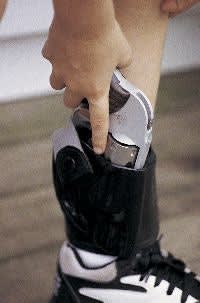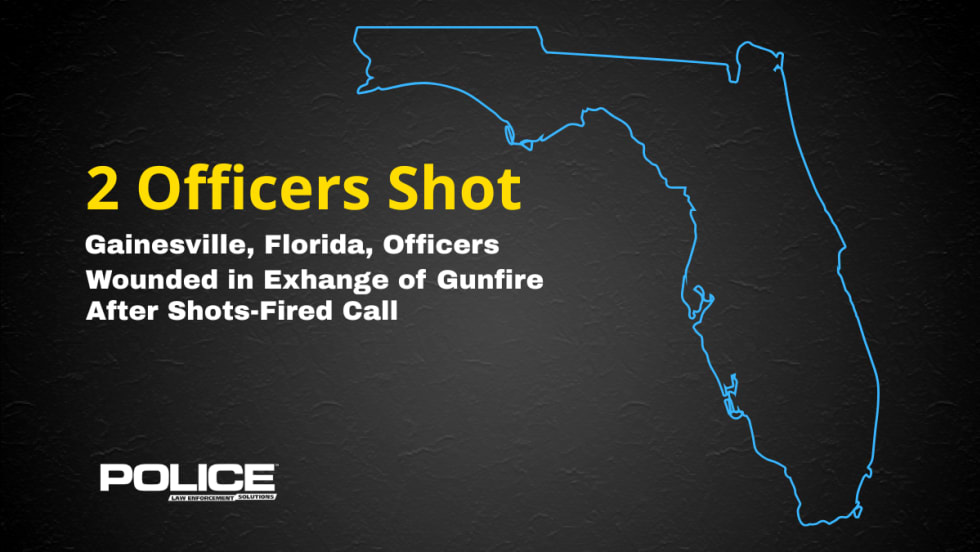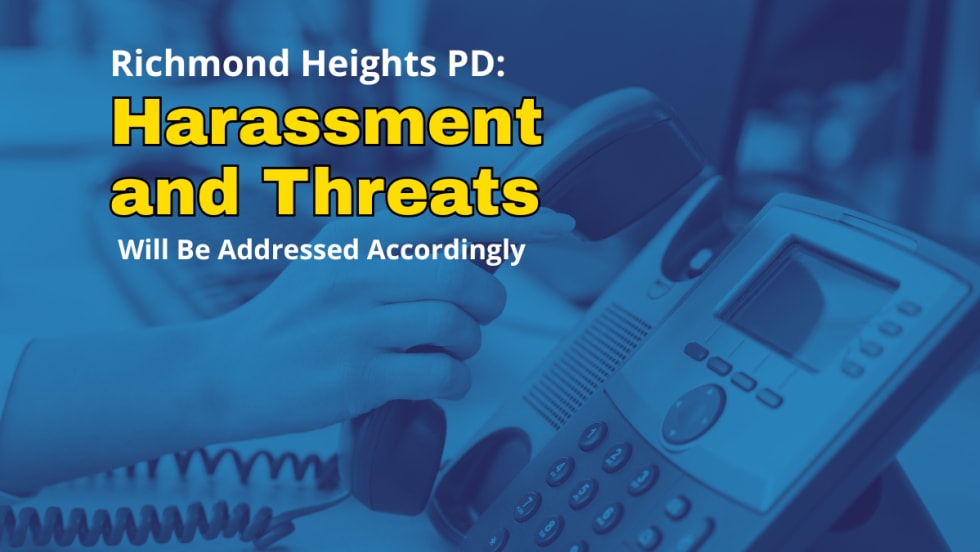Keep officer survival smart and simple.
The subject of officer survival should be a relatively straightforward and simple subject to address. Unfortunately, there are those who have made this subject matter complex, which could result in officer injuries and deaths. A survival plan does not have to read like an Ivy League college lesson plan to be successful. Actually, it should be as simple and direct as possible.
Law enforcement is a risk-filled occupation, but there are still unacceptable risks. The street smart officer should know what an unacceptable risk is and be willing to say "no" - no matter who is giving the order. It is essential that we complete tasks in such a way that they are to our advantage. Officer safety is essential.
I was contacted by an officer from another department who was being written up by a supervisor because he was seen approaching vehicles on the passenger side during traffic stops. The supervisor wrote up the officer because he felt these actions inconvenienced the citizenry, was overly dramatic and made the officer look like "a cowboy." Since it is impossible to have any tactical knowledge or expertise within your own agency, he asked if I could help.
The complaint had gone to the Chief at this point, so I made an appointment to meet with him. During this meeting, I explained to the Chief that most people stopped by the police expect the stopping officer to approach the driver's side window. By arriving on the passenger side, the officer did the unexpected, giving him a few seconds to assess the inside of the vehicle and look for danger signs. Additionally, I explained to the Chief that the citizen was not inconvenienced at all. As a matter of fact, since most people are right- handed, it is actually more convenient to talk to an officer on this side. I also pointed out that the officer is in a safer position from oncoming traffic on the passenger side. The Chief ruled in favor of the officer.
I am not saying that the passenger side approach is right for all traffic stops, but it is a tool that could have been lost if not addressed by an officer who knew when to say "no." This case is also an excellent example of how the simple subject of officer survival can be made unnecessarily complex.
I am always concerned about the qualifications of those who are teaching me new tactics or techniques. While there is much to be learned by experts from specialized fields, I admit to a bias towards those who have walked in my shoes.
We also need to recognize the value of economizing action. In the high stress environment of use-of-force action, even the most routine activity becomes difficult. Given this fact, it's critical that we don't needlessly complicate the situation. We need to determine what our priorities are and then stick with them. The first priority is not to just survive, but to win! Our goal is, as Sean Connery said in The Untouchables, "when your shift is over, you go home alive." Anything that can interfere needs to be re-evaluated. With this in mind, let's look at some of the misinformation or "myths" of survival.
Stopping Power
This is probably the least important topic in the tactical firearms arena, but an incredible amount of time is spent on it. When you think about it, it is not our perspective that is important here, it's the suspect's perspective. Their perspective is going to be based on whether or not you hit them while they are attacking you. A hit with a .380 adds to their perspective with much more authority than does a miss with a .44 magnum.
It does no good to worry about effectiveness of your issued firearm/ammo combination if you have no choice in the selection. While it is certainly a good idea to carry the most powerful sidearm that fits you and that you can control, lamenting about not having your ideal combination is counterproductive. Practice with what you have and get as good as possible with it. This is the right survival attitude and hopefully the day will come when you can carry your preferred weapon and ammunition.
I will not attempt to rate various calibers as to their effectiveness, but I have seen certain trends over the last 25 years. I will always select a hollow point cartridge, regardless of caliber. I have found that even if the bullet does not "mushroom" like in the magazine photos, its cookie cutter configuration tends to increase its effectiveness and reduce over-penetration. Keeping that in mind, the following are my choices regardless of brand: .38 special, 158 grain lead hollowpoint, 9mm-124/127 grain JHP+P, .40-155 grain JHP, or .45-230 grain JHP. I don't know enough about the new .357 SIG to give an opinion.
Shooting Techniques
Much has been written about Isosceles vs. Weaver and Point Shooting vs. Sighted Fire, but I'm not sure that any of it is relevant. Maybe we need to be familiar with all of them. In debating over these techniques, the goal of survival often gets lost in the shuffle.
Without a doubt, the most accurate way to shoot is to use the front sight. That being said, at close quarter distances, such sighting may be impractical. What is being overlooked is the middle ground, which I call "shooting by feel." The upper body must be utilized to put the gun on line with the target. This "felt" index requires repetition. If you think you are going to have enough time to thrust your gun out in front of you and chase down the front sight, you are kidding yourself! The gun has to be directed towards the target during the presentation, "flashing" on the front sight should do nothing more than confirm what your arms and torso have done. Whatever technique does this best for you is the one to use. Beyond that, the name is irrelevant.
Necessary Equipment
Today's street cop is saddled with more "kit" than ever before. The last thing that is needed is another piece of equipment that does not meet the mission. After 25 years of law enforcement and conversations with literally thousands of street cops, here is my list of necessary survival gear:
Soft body armor. It stops bullets and saves lives. Yes, I know it is uncomfortable, but not as uncomfortable as being dead. Enough said.
Spare ammo and backup weapon. This sounds obvious, but there are an alarming number of officers who do not carry spare ammo, especially off-duty. I saw one small-waisted female officer remove her magazine pouch to make room for a cell phone and pager. Wrong priorities, people! As for a backup gun, remember your high-tech semi-auto is a mechanical device and all devices break. When do you think Mr. Murphy will visit your gun?
A powerful flashlight. These don't have to be big to be powerful. Laser Products has revolutionized the concept of the handheld light with its line of sure-fire lights. If you don't have one, get one. Yes, they are expensive, but your life is worth it. Why? Because you must see that threat before you can counter it!
Handcuffs. These are taken for granted and are subjected to much abuse. Keep them in good working order and practice putting them on in a tactically sound manner. Statistics have shown that officers are most vulnerable and likely to be attacked when the handcuffs are going on. Why? Because this is the moment when most suspects realize that their freedom is gone!
Some type of long gun. Have a shotgun or carbine in the car for those cars that are known to be high threat. Handguns are portable, but not very effective or accurate. Take the best gun possible to a potential gunfight.
Knife. I'm not talking about a large fighting knife, though any knife carried could be used as a last ditch weapon. I am speaking about a cutting tool that can be used to cut seat belts, etc. A knife or multi-purpose tool has come in handy during my career more times than I can remember.
Tactics
There is probably more unsupportable B.S. about survival tactics than any other area of law enforcement. Tactics need to be simple and effective and based on your operational environment. Teaching a car stop tactic that requires four or five cars is totally irrelevant for the village officer who is alone or may have one backup officer. Maybe the simplest tactic is to tell officers that it is OK not to make a stop unless it can be done to their advantage!
Apply a "3 S test" to any tactic or technique you are thinking about putting in your "toolbox."
Simple. Is the technique Simple to perform? Can it be remembered and used without constant repetition?
Sense. Does the technique make Sense based on your life and work experience? Will it work in your particular environment?
Street. Is the technique Street proven? Has it worked before or is it just theory?
If a technique or tactic cannot meet your "3 S test," then maybe it's not for you.
Last but not least, are you physically fit enough to fight for your life while you wait for backup? Have you ever done the drill where you fight with someone who is wearing a RedMan or FIST suit? If you have, then you know how long one minute can feel. Maintaining a level of fitness is not only good for survival, it's good for your physical and mental health.
While this article does not cover all of the problems faced by officers trying to become more survival-oriented, it does offer a dose of reality as to what the goal is. Stay alert, stay aware and always watch your 360˚ environment.
Dave Spaulding follows the KISS principle, which is keeping it simple, of course. After 25 years, he knows of what he speaks.












